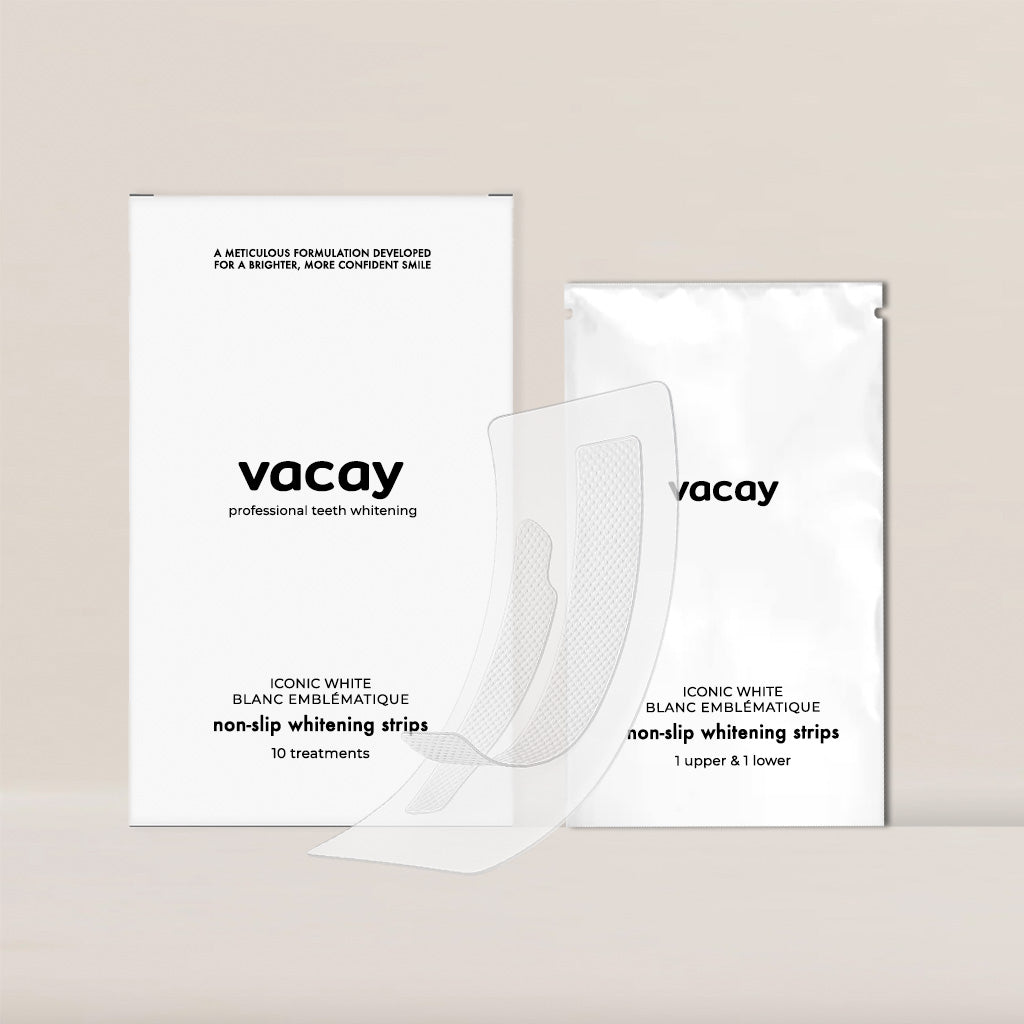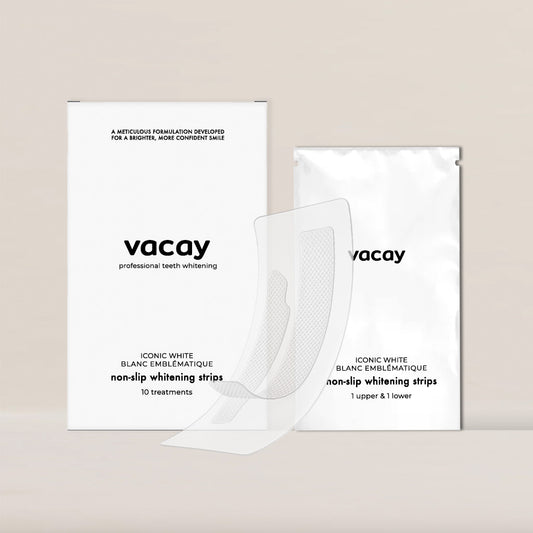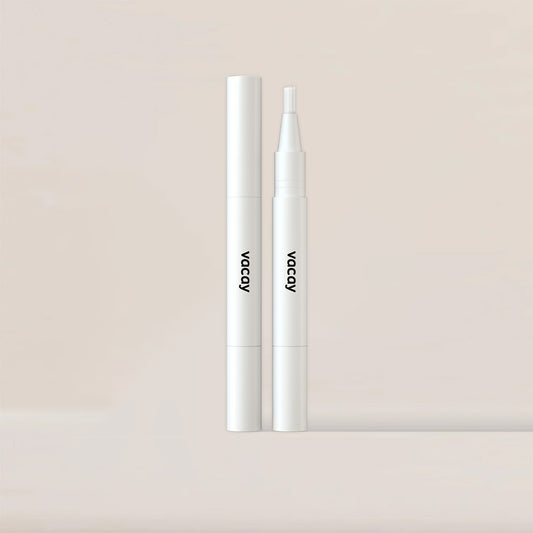
Teeth Whitening During Pregnancy? What You Need To Know
Pregnancy is a beautiful and life-changing journey—but it also comes with a lot of questions. From what’s safe to eat to which beauty products are off-limits, expecting moms want to do everything they can to protect their growing baby. One common question that comes up: Is it safe to whiten my teeth while pregnant?
Whether you’re dealing with pregnancy cravings that lead to extra coffee or just want to feel a little more confident with a brighter smile, here’s everything you need to know about teeth whitening during pregnancy—and what safe alternatives exist if you’re looking to glow from the inside out. It's important to be aware of the potential concerns associated with bleaching agents used in dental treatments, as they can pose risks and sensitivities for pregnant women.
Why Oral Health Is Extra Important During Pregnancy
You’ve probably heard that your oral health can impact your overall health—but during pregnancy, this becomes even more important. Hormonal changes can affect your gums, make your teeth feel more sensitive, and even increase your risk for cavities or gingivitis.
Here’s why keeping up with your dental care matters more than ever:
- Poor oral health has been linked to complications like preterm birth and low birth weight.
- Some expecting moms avoid the dentist because they worry it’s not safe—but regular cleanings and check-ups are actually encouraged during pregnancy.
- Routine visits can catch small issues before they become bigger problems.
- Brushing, flossing, and rinsing daily supports your well-being and your baby’s, too.
The Real Risks of Teeth Whitening While Pregnant
Now, let’s talk whitening. The truth is: there’s no strong evidence that teeth whitening is dangerous during pregnancy—but there’s also no definitive research saying it’s safe, either. That’s why most experts take the “better safe than sorry” approach.
Here’s what you should know:
- No studies have confirmed whether whitening causes complications like miscarriage or birth defects.
- Both in-office and at-home whitening products use ingredients (like peroxide and carbamide peroxide) that haven’t been tested on pregnant women.
- Sensitivity is a common side effect, and pregnancy already makes gums more prone to irritation.
- For now, it’s generally advised to postpone teeth whitening until after baby arrives.
When to Avoid Whitening Altogether
Even though teeth whitening isn’t proven to be harmful during pregnancy, major dental organizations—including the American Dental Association (ADA)—recommend avoiding elective cosmetic treatments while expecting. Nursing mothers shouldn't get their teeth whitened, it is generally not recommended for pregnant women due to potential oral health risks.
This is especially true if:
- You’re experiencing increased gum sensitivity or inflammation.
- You’re in your first trimester, when your baby’s development is most critical.
- You’re dealing with nausea or vomiting, which can already weaken enamel.
The safest bet? Wait until postpartum to resume any whitening treatments, including professional bleaching or over-the-counter strips.
Dental Health During Pregnancy: What to Expect
It’s not just about whitening—your mouth goes through real changes during pregnancy, too.
- Hormones can cause swollen, bleeding gums (hello, pregnancy gingivitis).
- Cravings and morning sickness can lead to more acid exposure and higher cavity risk.
- You might feel too tired (or nauseous) to brush and floss like usual—but it’s important to push through when you can.
Your best defense is consistency. A soft-bristled toothbrush, gentle toothpaste, and regular dental visits can make a world of difference.
Tooth Sensitivity During Pregnancy
Pregnancy often brings about unexpected changes, and tooth sensitivity is one of them. This condition can be particularly uncomfortable and is often exacerbated by hormonal fluctuations. Increased blood flow during pregnancy can make your gums more sensitive, leading to heightened responses to hot or cold stimuli. Additionally, morning sickness can expose teeth to stomach acids, contributing to enamel erosion and further sensitivity.
To manage tooth sensitivity during pregnancy, consider the following tips:
- Use a Soft-Bristled Toothbrush: This can help reduce irritation and protect your gums from further sensitivity.
- Opt for Toothpaste Designed for Sensitive Teeth: These products often contain ingredients that help soothe and protect sensitive areas.
- Avoid Extremely Hot or Cold Foods: Temperature extremes can trigger sensitivity, so try to consume foods and beverages at a moderate temperature.
- Maintain Good Oral Hygiene: Regular brushing and flossing with fluoride toothpaste can help protect your teeth and gums.
Consult Your Dentist: If sensitivity persists, speak with your dentist for personalized advice and potential treatments that are safe during pregnancy.
Dental Issues During Pregnancy
Pregnancy can bring about several changes in your body, including your oral health. Here’s what you need to know about dental issues during pregnancy:
- Increased Risk of Cavities and Tooth Erosion: Hormonal changes and increased acidity in the mouth can make you more susceptible to cavities and tooth erosion. Morning sickness and vomiting can exacerbate this by exposing your teeth to stomach acids.
- Gum Inflammation and Bleeding: Increased blood flow and hormonal changes can cause your gums to become more sensitive, leading to inflammation and bleeding. This condition, known as pregnancy gingivitis, is common but manageable with good oral hygiene.
- Cravings for Sugary and Acidic Foods: Pregnancy cravings can sometimes lead to an increased intake of sugary and acidic foods, which can contribute to cavities and tooth decay. It’s important to balance these cravings with healthy choices and maintain a consistent oral care routine.
- Regular Dental Check-Ups: Regular dental check-ups and cleanings are crucial during pregnancy. They help prevent and detect dental issues early, ensuring both your and your baby’s health. Don’t hesitate to inform your dentist about your pregnancy so they can tailor their care accordingly.
- Prioritize Oral Health: Brushing and flossing regularly with fluoride toothpaste, and avoiding sugary and acidic foods, can help maintain your oral health. Good oral hygiene is essential for preventing dental issues and ensuring a healthy pregnancy.
- Consult Your Dentist: Before undergoing any teeth whitening procedures or using teeth whitening products, it’s important to consult your dentist. Professional teeth whitening procedures can be safe during pregnancy if done by a qualified dentist, but it’s essential to prioritize your oral health and safety.
- Maintaining good oral health during pregnancy is crucial for both you and your baby. Regular dental check-ups and a consistent oral care routine can help prevent and detect dental issues early, ensuring a healthy and happy pregnancy.
What About Whitening While Breastfeeding?
No, once your baby is born, its best to hold off for teeth whitening.
- Most whitening products contain peroxides, which haven’t been proven unsafe for nursing moms—but we still recommend talking to your doctor or dentist.
- If you’re breastfeeding, it’s smart to wait a few weeks postpartum before resuming any cosmetic dental treatments.
- Your baby’s health and breast milk is still the priority, so always check with your healthcare provider first.
Professional Teeth Whitening Procedures: A Postpartum Glow-Up
Once you’re cleared by your dentist and doctor, you can explore professional options like:
- In-office whitening treatments using hydrogen peroxide
- Take-home custom trays from your dentist
- vacay teeth whitening strips with safe, regulated ingredients, learn more here
Just remember, if you’re still nursing, it’s worth getting a second opinion before starting anything too strong.
Skip DIY Kits (For Now)
As tempting as they are, many DIY whitening products for tooth whitening should be avoided during pregnancy.
- Ingredients vary widely and aren’t always regulated.
- There’s no clinical supervision or customization.
- They can cause unexpected side effects, especially with changing pregnancy hormones.
Always ask your dentist before trying any new whitening product, especially during pregnancy. Whitening toothpaste can be abrasive, so be careful with them too!
During pregnancy, it's best to avoid teeth whitening methods like oil pulling with baking soda or using lemon juice, as they can be abrasive and potentially harmful to your teeth and gums.
The Bottom Line
You deserve to feel beautiful and confident during your pregnancy—but when it comes to whitening teeth your teeth, patience is key.
- Whitening treatments are best postponed until after delivery to have your teeth whitened safely and to avoid unknown risks.
- If you’re breastfeeding, talk with your doctor first—but whitening is generally considered safe.
- Focus on great oral hygiene now for a healthier smile (and baby!) later.
Need a confidence boost in the meantime? Go for that ADA-approved toothpaste, flash your gorgeous pregnancy glow, and bookmark that whitening appointment for after baby arrives.
From all of us at Vacay Teeth Whitening: You’ve got this, mama. 💛
Stay radiant, stay healthy, and when the time’s right, we’ll be here to help you shine brighter than ever.




